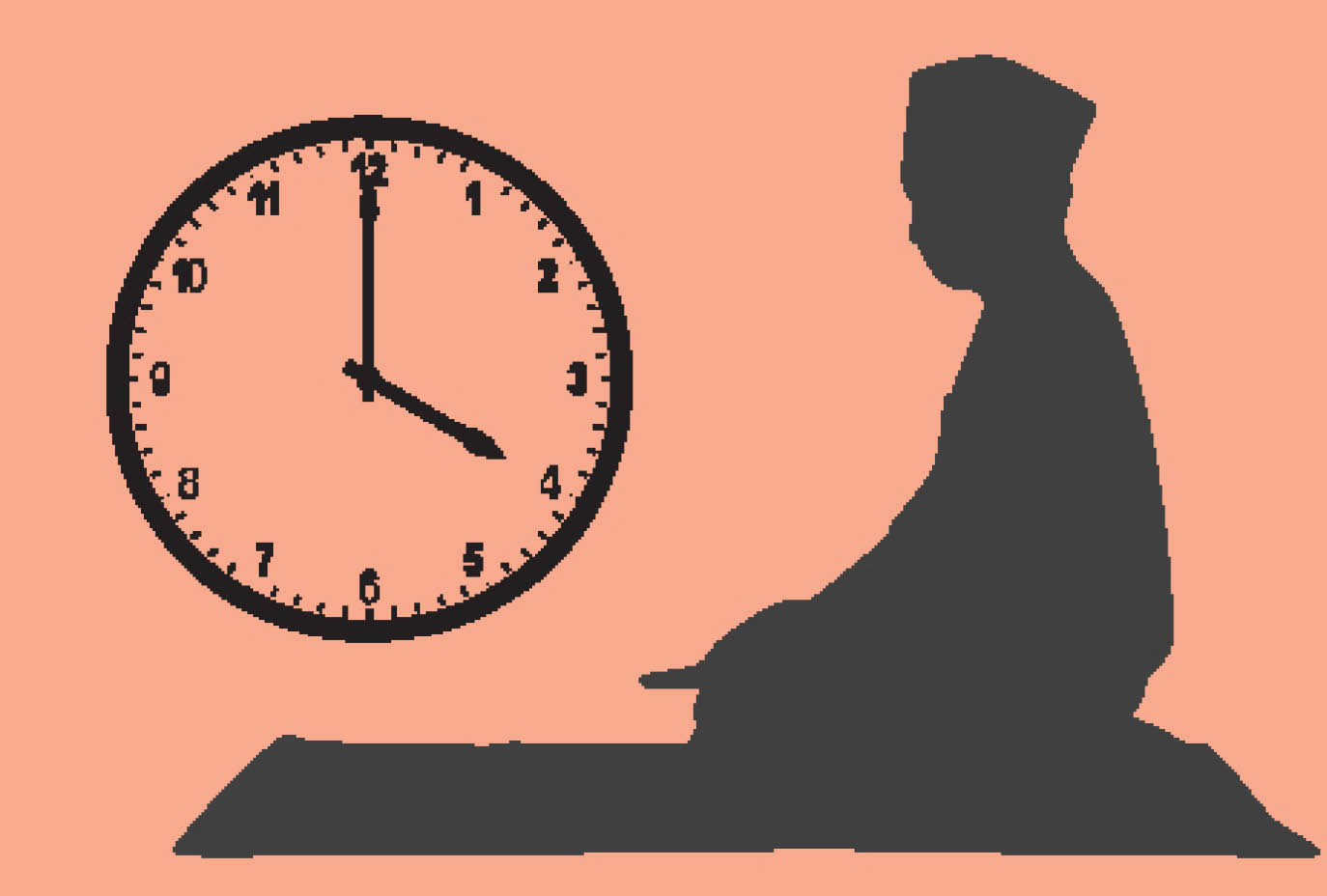Most religious activities in Islam have defined period(s) within which they are to be performed. For each of the five daily obligatory prayers, there’s a period for observing it. Aside of Ramadan fast which has specific month within which it is to be observed, even the fast (abstinence from food, drinks and carnal desires) itself has a period delineated for it (usually from dawn to dusk).
The Zakat paid on wealth (cash, animals, farm produce) also have maturity period and minimum amount. The annual pilgrimage to the holy land of Makkah also has a period (the last month of the Islamic lunar calendar) within which to perform it.
The time for early morning meal (sahur) and breakfast (iftar) during the holy month of Ramadan has also been specified. The time for standing at the mount Arafat during the pilgrimage to Makkah has also been defined. A Muslim who ignores the preferred period for observing these rites stands to lose the reward for the acts of worship.
This means these acts of worship are only meaningful if they are performed at the right time, otherwise they become invalid. Lateness in the observance of these acts of ibadah undermines their value. This, therefore, signifies the place of punctuality in our obedience to and service of Allah (SWT).
Today, punctuality is almost missing lost in our religious and other aspects of life. Some people don’t find anything wrong in attending to their religious duties again. Lateness to public functions is a modern norm among contemporary Nigerian Muslims. It is as if some of us cannot do without going late to for religious duties or public functions. Many people, either as leaders or followers, have little regard for time. It is not punctuality when you arrived late at meetings especially if they are routine ones.
It is not punctuality when you use your position in a public office to shift the time for a meeting further simply because you cannot meet up with the earlier scheduled time. It is wrong for one person, no matter how highly (or even lowly) placed, to keep others waiting for a meeting with no reason other than disrespect for the right of others. Contrary to the practice in western societies where conventions of protocol require a leader to be the last to arrive at the occasion, Islam demands that leaders should not just arrive on schedule at functions but should also be there before others.
Worshippers are sometimes kept waiting longer than necessary by some prayer leaders who in their capacities are Constant Leaders (Imam Ratib) in such mosques would (for no authentic cause) refuse to come out for prayers promptly. Sometimes too, invited guests are kept at gathering for a religious feast (walima) for too long by the late arrival of those whose roles as chairmen or guests of honour would not allow for the take-off of the programme in their absence. This is unbecoming of the dignitaries who go late to public gatherings. It is similarly prejudicial to the image of Muslims when they fail to keep to time promptly If there is any religion that respects time, it is Islam. That is why it defines the definite time for each of the five daily prayers. Allah (SWT) states in Qur’an 2:238 “Guard strictly your (habit of) prayers, especially the middle prayer; and stand before Allah in a devoid (frame of mind)”.
Late arrival of special guests at public gatherings often affect the programme of events. Apart of having kept people waiting, such late comers among the VIPs most times insist that the programme of the occasion should be rushed through because of other events that they need to attend. When this happens, some items on the agenda are either modified or skipped completely from the programme. The time allotted for speeches are also usually affected by such modifications.
I know of a First Class Emir in North-Central geo-political zone of Nigeria who never goes late to functions. He always arrives in time at every occasion to which he is invited. That is leadership by example. I also know of another national figure in the country who, when asked to serve as a chairman at any public event, would direct the event to commence after giving a grace of about half an hour to late comers. Punctuality is certainly a gentle man’s quality. It should not matter if the programme starts with many seats vacant.
The idea of ‘African Time’ which is generally believed to be the official time for events in Nigeria is un-Islamic. I wouldn’t know the source of this Nigerian terminology (African Time). However, if as the name implies, it was framed to denote the negative attitude of Africans to “Time” as opposed to the positive disposition of Europeans and Americans to it, then one would wish he wasn’t born an African. Let us in the name of our religion, Islam, discard the frame “African Time” from the compendium of our attitude to time and replace it with “Islamic Time”.
It is more dignifying to Islam as much as it makes us more honorable as Muslims each time we keep to time. This column humbly calls on Muslims to regard their roles as special or ordinary guests at occasions as a serious matter of responsibility. Let us keep too time in all our activities, whether religious, social, economic or political. We lose respect once we fail to keep to time. May Allah (SWT) guide us to imbibe the noble quality of punctuality.

 Join Daily Trust WhatsApp Community For Quick Access To News and Happenings Around You.
Join Daily Trust WhatsApp Community For Quick Access To News and Happenings Around You.


